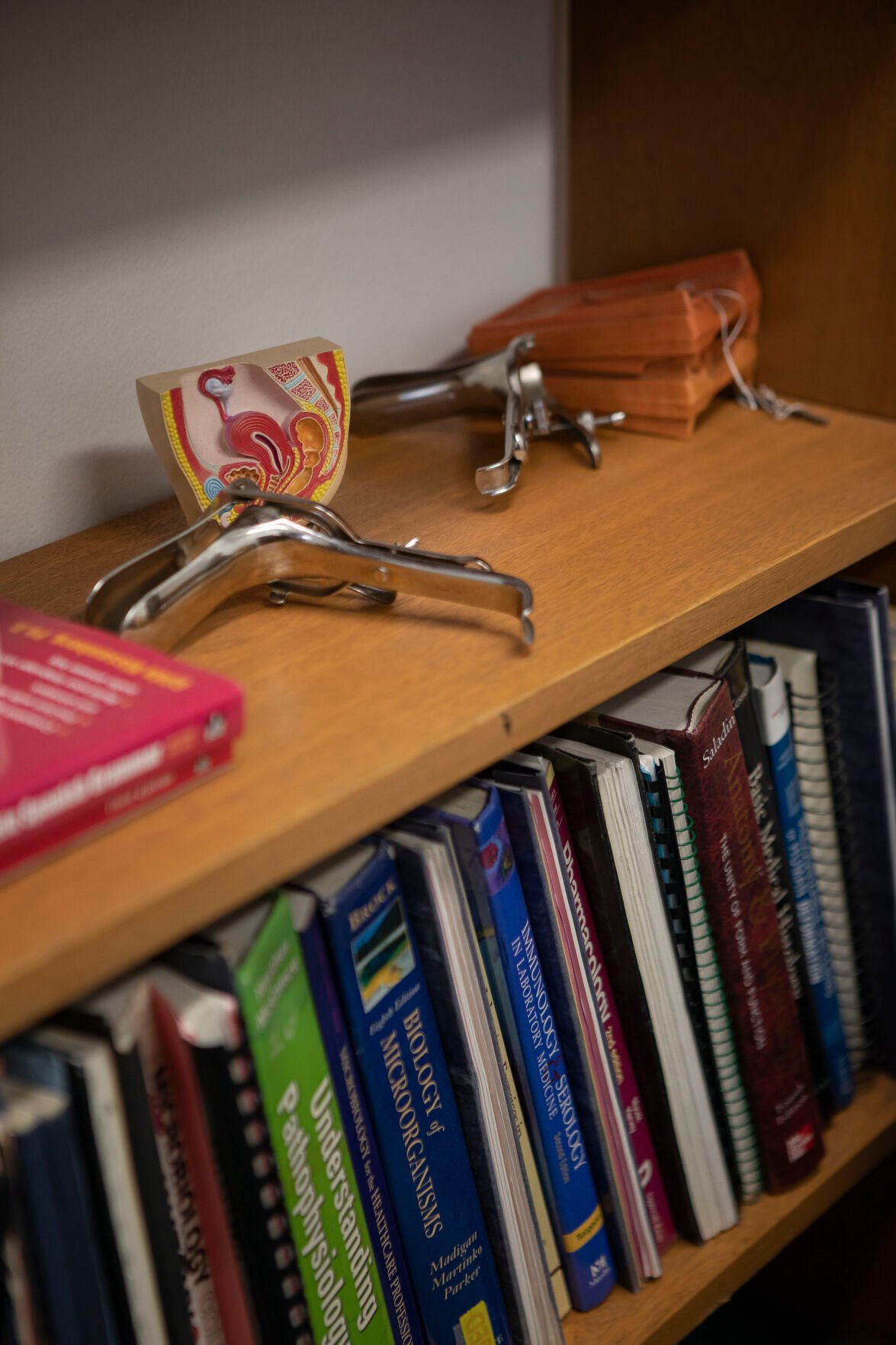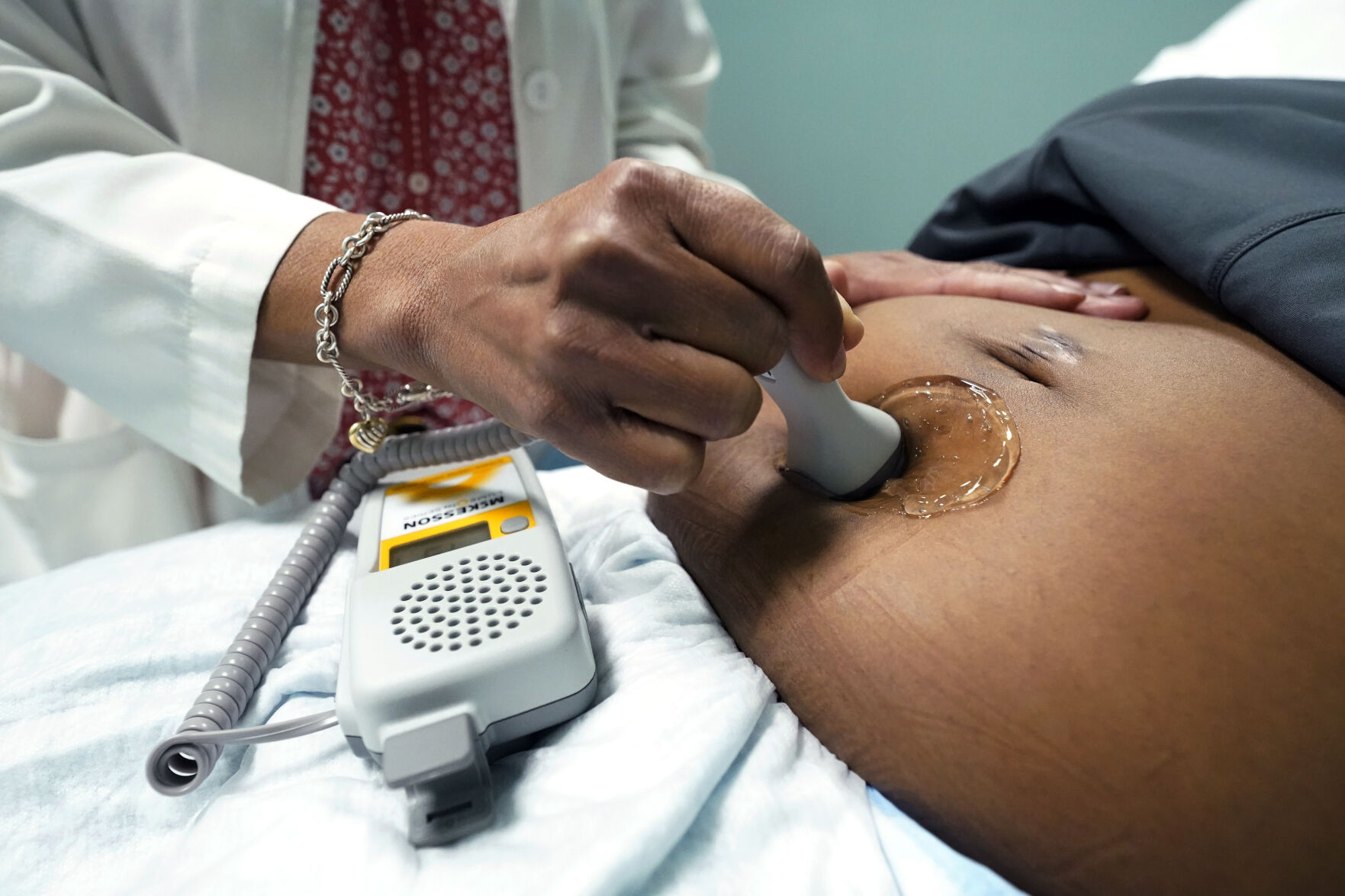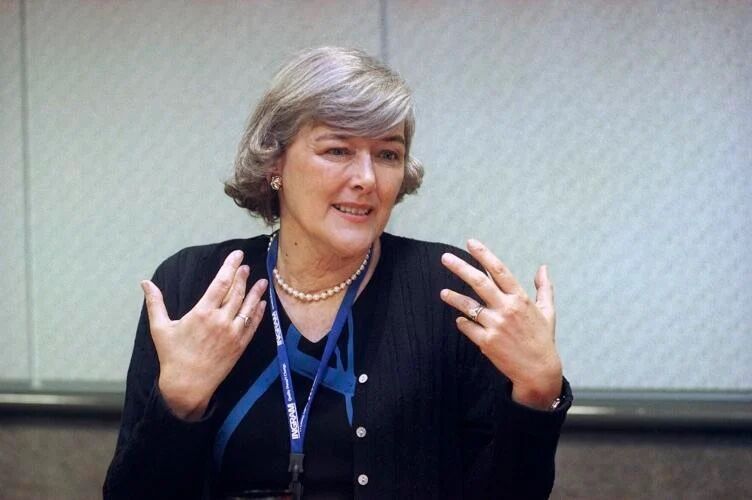Demand for abortions in Colorado from out-of-state clients skyrocketing
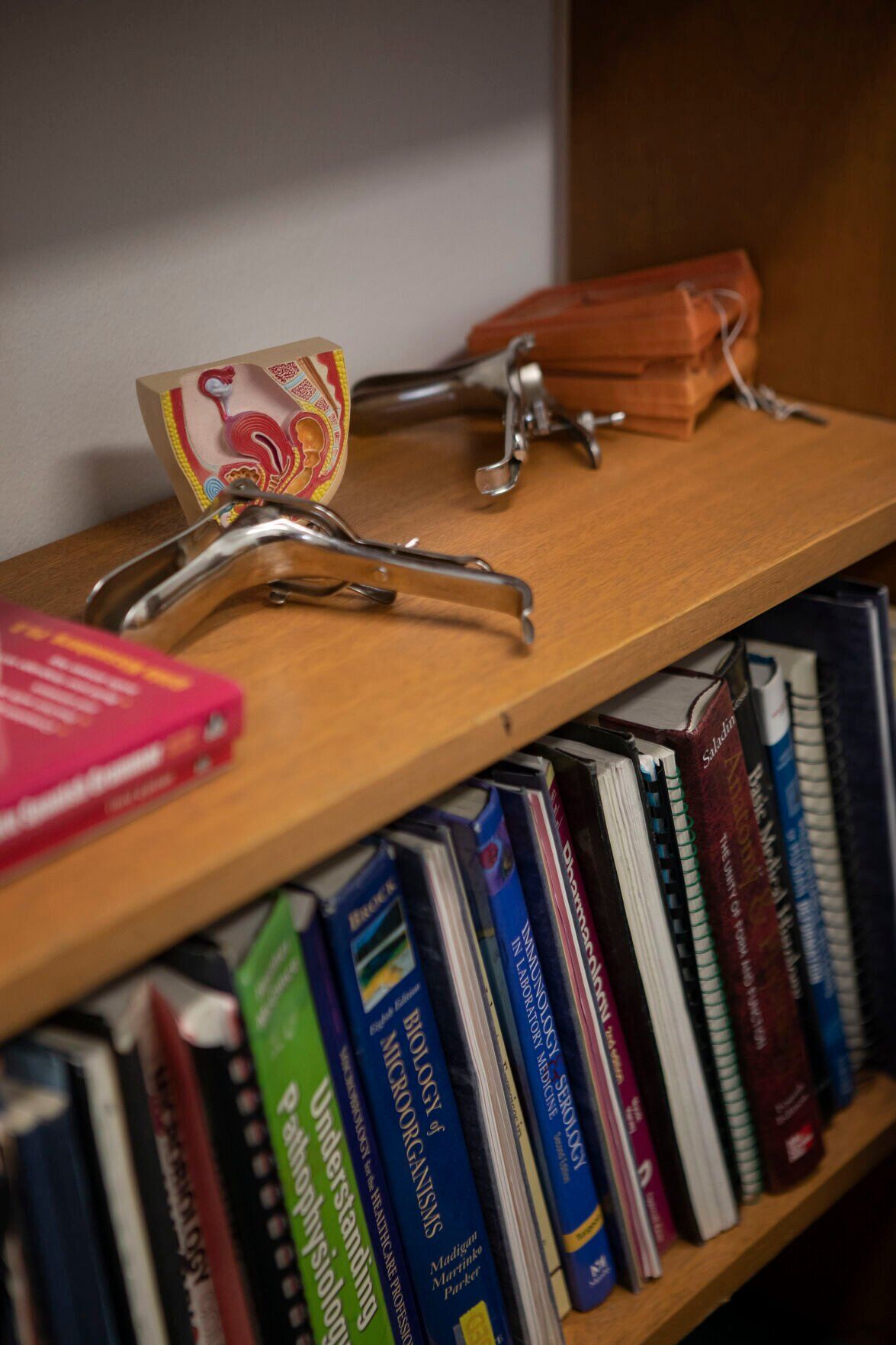
One Texas woman recently drove 18 hours to Colorado with an ectopic pregnancy, where a fertilized egg mistakenly implants outside, instead of inside, the uterus.
The condition is dangerous; a rupture could lead to the woman bleeding to death.
The woman didn’t know if that would happen to her while she was en route to obtain an abortion in Colorado, said Laura Chapin, spokeswoman for the Cobalt Abortion Fund.
“It’s not a viable fetus, but Texas hospitals aren’t going to take that risk,” Chapin said.
In this case, the situation worked out all right, and the woman received the care she needed.
A woman from a different family seeking an abortion in Colorado in the past few months had three jobs and two kids and couldn’t afford another.
“They borrowed a cousin’s car to come here, had to keep it quiet, so their boss didn’t know,” Chapin said.
Out-of-state women have been pursuing abortions at Colorado clinics for decades because it’s one of a few states that has had no restrictions on the stage of gestation, meaning women have the legal right to obtain an abortion from conception until birth.
What’s changed, said Chapin, is that when the United States Supreme Court overturned Roe v. Wade on June 24, holding that the federal constitutional right to an abortion would revert to individual state control, some states authorized full-scale bans on abortions.
News analysis: Roe decision led to spike in Colorado’s voter registration, particularly among women
Since then, the demand for abortions in Colorado has spiked dramatically, with the majority of patients coming from Texas, followed by Oklahoma, Arizona, Wyoming and New Mexico, according to Planned Parenthood of the Rocky Mountains.
By the end of September, the number of out-of-state patients seen this year – at 2,477 – had far surpassed 2021’s total of 1,560, according to data from the Colorado Department of Public Health and Environment.
A Planned Parenthood employee said the organization had a total of 222 out-of-state abortion patients in the 45 days before Roe v. Wade was overturned, compared with 824 out-of-state abortion patients in the 45 days after the June 24 decision – an increase of 271%.
Anti-abortion activists expected more women to have abortions in Colorado.
“We knew Colorado was going to become somewhat of an abortion tourism state when we liberalized our law and some states around us limited access to abortion, but the high numbers coming from out of state have been surprising and disturbing to us,” said Julie Bailey of Pikes Peak Citizens for Life and director of the Respect Life Apostolate with the Catholic Diocese of Colorado Springs.
The staggering jump in requests for services also has created long waiting lists for private providers, one of whom says it will be impossible to see all the patients who want to come here.
“Colorado is picking up the medical, emotional and financial tab for abortion bans in other states,” Chapin said.
Abortion: A great religious divide that also unites faithful opponents and supporters in Colorado
A Texas law that took effect in September 2021 prohibits abortions after detection of a fetal heartbeat, which is about six weeks of gestation, but allows for abortions in physician-documented medical emergencies. It provided for lawsuits against anyone who “aids or abets”
As of August, Texas law permits felony charges to those involved with an illegal abortion.
“Doctors are even afraid to refer a patient without fear of being sued,” said Dr. Warren Hern, who runs a private medical abortion practice in Boulder that’s known worldwide for performing late-term abortions and working with difficult pregnancies, such as “catastrophic fetal abnormalities. “
“People are terrified,” he said. “Women are suffering.”
Two-thirds of women asking Cobalt for financial assistance are from Texas, Chapin said, with Wyoming and the Dakotas ranking next.
Front Range cities of Fort Collins, Boulder, Denver and Colorado Springs are where the majority of out-of-state women are heading to terminate their pregnancies, according to Cobalt.
Hern, founder and owner of Boulder Abortion Clinic in Boulder, is one of about two dozen providers statewide, Cobalt statistics show.
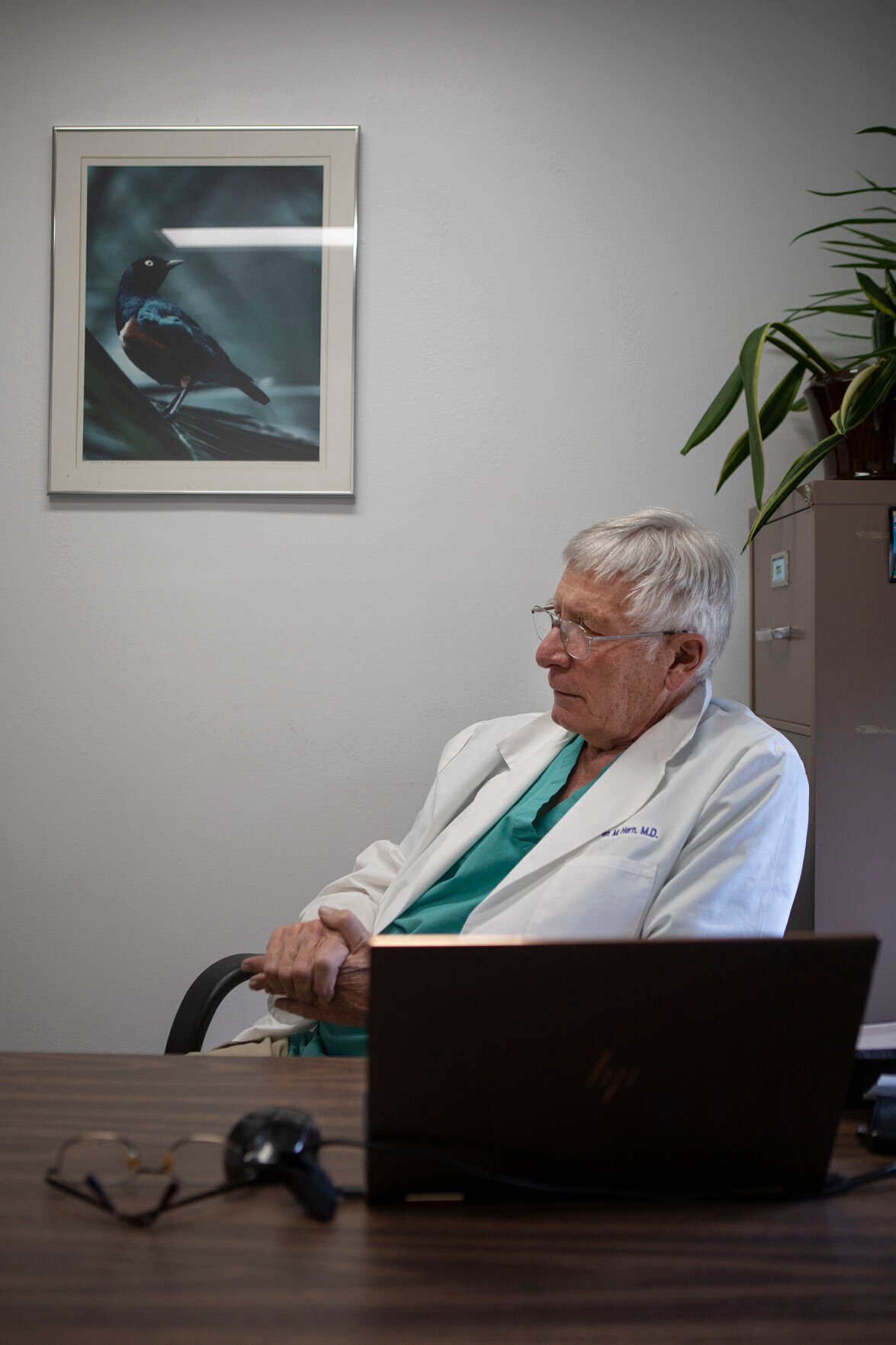
“I can’t possibly see all the patients who want to come here,” he said, “and waiting lists are very bad for patients because they end up being farther along.”
Abortion procedures are time sensitive; the longer a woman has to wait to have an abortion, the more expensive and involved it becomes.
“If someone wants an appointment and we can’t see them that week, we have to push it out to the week after, and then the next week,” Hern said. “I’ve had patients looking for two to three months to get an abortion.”
Cost is a problem for many of the women he sees.
“They don’t have bus fare to travel to the end of town much less fly across the country,” Hern said.
Limits on funding
Public funding for abortion in Colorado is limited to cases of life endangerment, rape and incest. The Cobalt Abortion Fund started in 1984 in Colorado by Unitarian Universalists, to use private donations to help women whose abortions weren’t covered by insurance pay for the gap in costs.
That year was also when Colorado had the most abortions recorded, with 17,550 procedures, according to statistics from the Colorado Department of Public Health and Environment.
Colorado tracked 11,580 abortions, last year, and from January through September of this year saw 9,898 abortions.
As the state’s only independent abortion fund in the state, Cobalt spends most of its contributions on defraying costs for women related to travel, motel stays, meals and the price of procedures.
In the past four months, the organization has seen an “exponential increase” in need but has been able to raise enough money not to turn anyone away, Chapin said.
In 2021, the organization spent $6,000 total in “practical support,” for expenses related to transportation, lodging and food, and $200,000 in procedure funding for about 1,100 clients, she said.
Through September, the organization has assisted 1,084 clients with $273,000 in procedure funding and $164,703 in practical support, Chapin said.
A first-trimester abortion can cost $500 to $600, when up to 10 weeks the medication abortion pill process can be used. Fetal tissue also can be removed by aspiration or suction.
Also concerning to anti-abortion groups is the number of women opting for the two-step chemical pill, in which a woman essentially expels the fetus at home or in a hotel room, instead of during a surgical procedure, Bailey said.
“That is fraught with danger because women are managing their own abortions in their homes and not under the close care of a physician,” she said, “and we’re certain that’s going to result in more women being hurt. I don’t think that’s a reflection of how we should be caring for women.”
Just over two in three women who had abortions in 2021 in Colorado used the non-surgical medical procedure, while 28% had a suction method, according to state statistics.
As a pregnancy advances into the second and third trimesters, an abortion gets “more complicated,” Chapin said, and can run $1,000 or more. Cobalt usually pays about half of the procedure cost for clients, she said.
Planned Parenthood also offers a “Patient Assistance Fund,” and businesses such as Amazon, Disney, Apple, Netflix, Dick’s Sporting Goods, Estee Lauder, Comcast, Cigna, Citigroup, Eli Lilly and others have said they are expanding company benefits to cover travel expenses related to abortion services.
Two prominent abortion funders in Texas, the Texas Equal Access Fund and the Lilith Fund, have suspended providing money for abortions, saying on their websites that they are taking time to evaluate operations in light of the changes in abortion laws.
“The right to have an abortion is meaningless if it’s not accessible,” says abortion advocacy group Avow Texas, on its website. The organization “pushes the boundaries” in its quest to reduce the stigma surrounding abortion. It promotes that abortion is “safe, common and normal” and sells T-shirts that say, “Abortion is Love” and a heart shape with the word “abortion” on it.
Faith groups give aid
Some progressive religious groups helped women get an abortion before the procedure became legal in 1973.
The practice has resumed, also in an underground format as it was in the past, said Rabbi Jay Sherwood of Temple Shalom, the largest synagogue in Colorado Springs.
“Those networks do exist, and the people who are in those networks in order to protect the women and the clergy are not speaking about it publicly,” he said.
Many rabbis in Colorado would assist out-of-state Jewish women who reached out to them, Sherwood said. But it would be considered a private and spiritual matter.
Unlike some conservative Christian denominations and Islam, Judaism does not forbid or oppose abortion, Sherwood said, as life is considered to begin at birth, not conception.
While Judaism says abortion can and in certain cases must happen if it threatens the life of the mother, whether that only refers to the mother’s physical life or also her emotional, psychological, financial or sociological life well-being, is the question that gets debated, Sherwood said.
Either way, “the Jewish world says you cannot outlaw abortion,” he said.
“It’s important abortion remain legal across the entire United States,” Sherwood said, “because every case is different, and it’s important we don’t legislate one religious perspective over another.”
The outlook remains unstable, women’s rights activists say.
“We have hostile states saying they’re going to prosecute anyone who comes here for care, which is a very scary prospect,” Chapin from Cobalt Abortion Fund said. “A lot is up in the air, and the uncertainty is causing a lot of people to give pause.”
But Colorado, which in 1967 became the first state to expand legalized abortion from being permissible only if the mother’s life was in danger to include cases of rape and incest, appears poised to continue its allegiance to access for all.
The Democratically controlled state Legislature codified abortion rights in April by passing the Reproductive Health Equity Act. The new law guarantees as a “fundamental right” continuing a pregnancy or undergoing an abortion. The law also declares that a fertilized egg, embryo or fetus does not have independent rights.
Abortions in Colorado
? 17,750 abortions were performed in 1984, the highest amount the state has had in one year
? In 2021, 11,580 abortions were done, up from 9,869 in 2020
? By the end of September, the number of abortions performed, 9,898, had surpassed 2020’s total, with three months remaining
? Of those, 2,477 women came from out-of-state this year, nearly double the amount in 2020
? About three in four abortions conducted in Colorado last year were eight weeks’ gestation or less
? Thirty-five women who had abortions last year were more than 28 weeks into their pregnancy
? Just over two in three women who had abortions in 2021 opted for the non-surgical medical procedure, while 28% had a suction method
? One in five women who sought abortions last year had had one previous abortion, and 3%, or 367 women, had had three or more prior abortions
Source: Colorado Department of Public Health and Environment
